4 Tips for Coaching Outside of Your Content Area
Categories: Teaching Tips
Instructional coaching roles can look differently across school buildings and districts. Some instructional coaches focus solely on literacy, math, technology, or another content area. While other instructional coaches are “cross content” coaches and wear several different hats.
My instructional coaching has always focused on literacy, and at times, I have worked alongside a math coach. This year, I have focused on 3-5 literacy coaching and our new instructional coach is focusing on K-2. Considering what math coaching looks like within this new set-up, is something we have been thinking about as a leadership team.
Anyhow, we recently kicked off our quarter 4 coaching cycles, and one of the teachers I am working with was especially interested in a math focused coaching cycle. I took a moment to consider then thought, “What the heck?!” and decided to take the plunge.
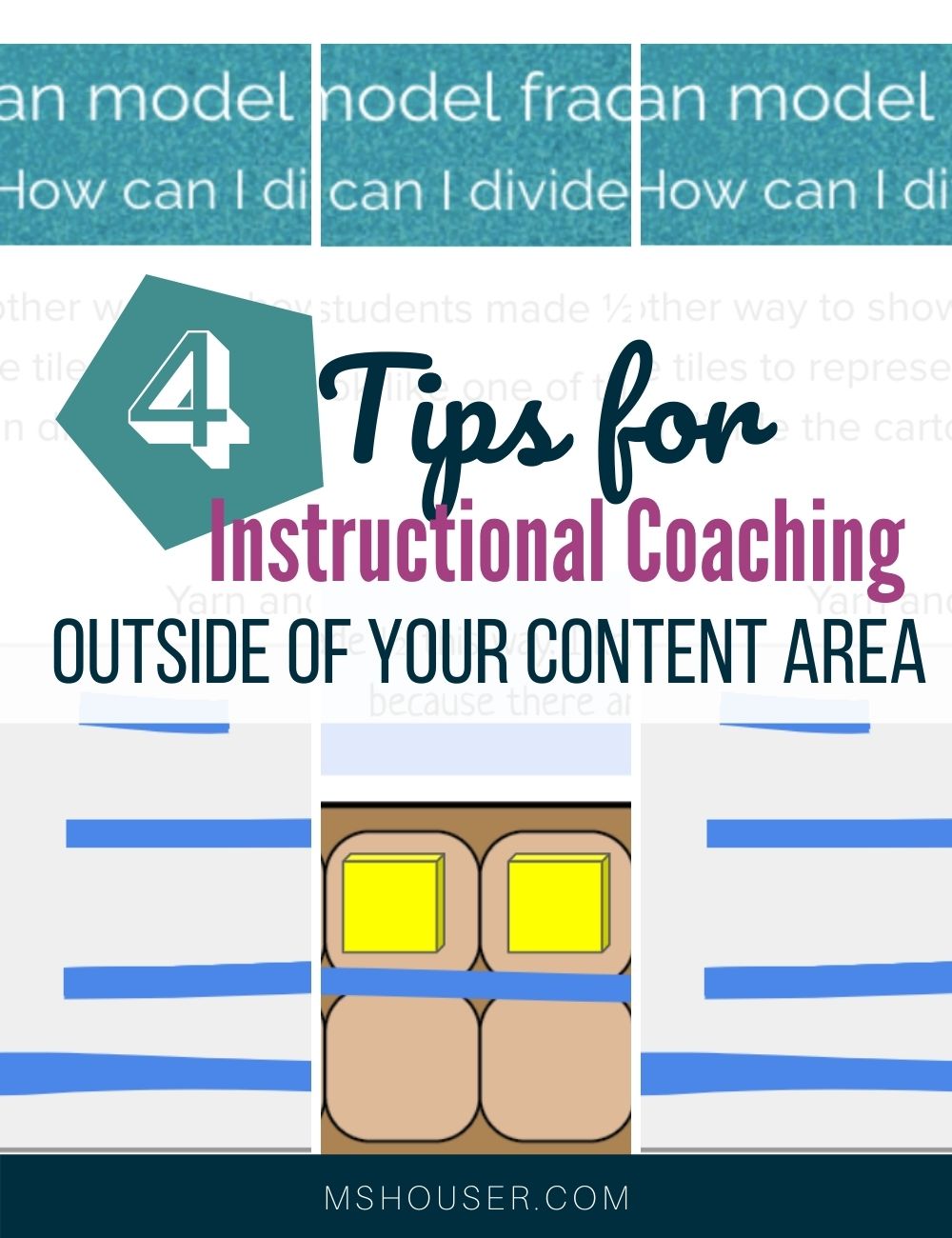
Here are four tips that have helped me move into a coaching cycle outside of my content area.

As with all coaching cycles, I enter our kick-off coaching meeting through a lens of partnership and dialogue. As Jim Knight explains, through a partnership approach, neither teacher nor coach is the “expert.” Rather, we’re both equal partners and as your coach, I’m here to support you with your professional goals connected to student achievement.
Entering this math focused coaching cycle through this lens, took the pressure off of having to be the “content expert”, and I felt more confident moving forward.
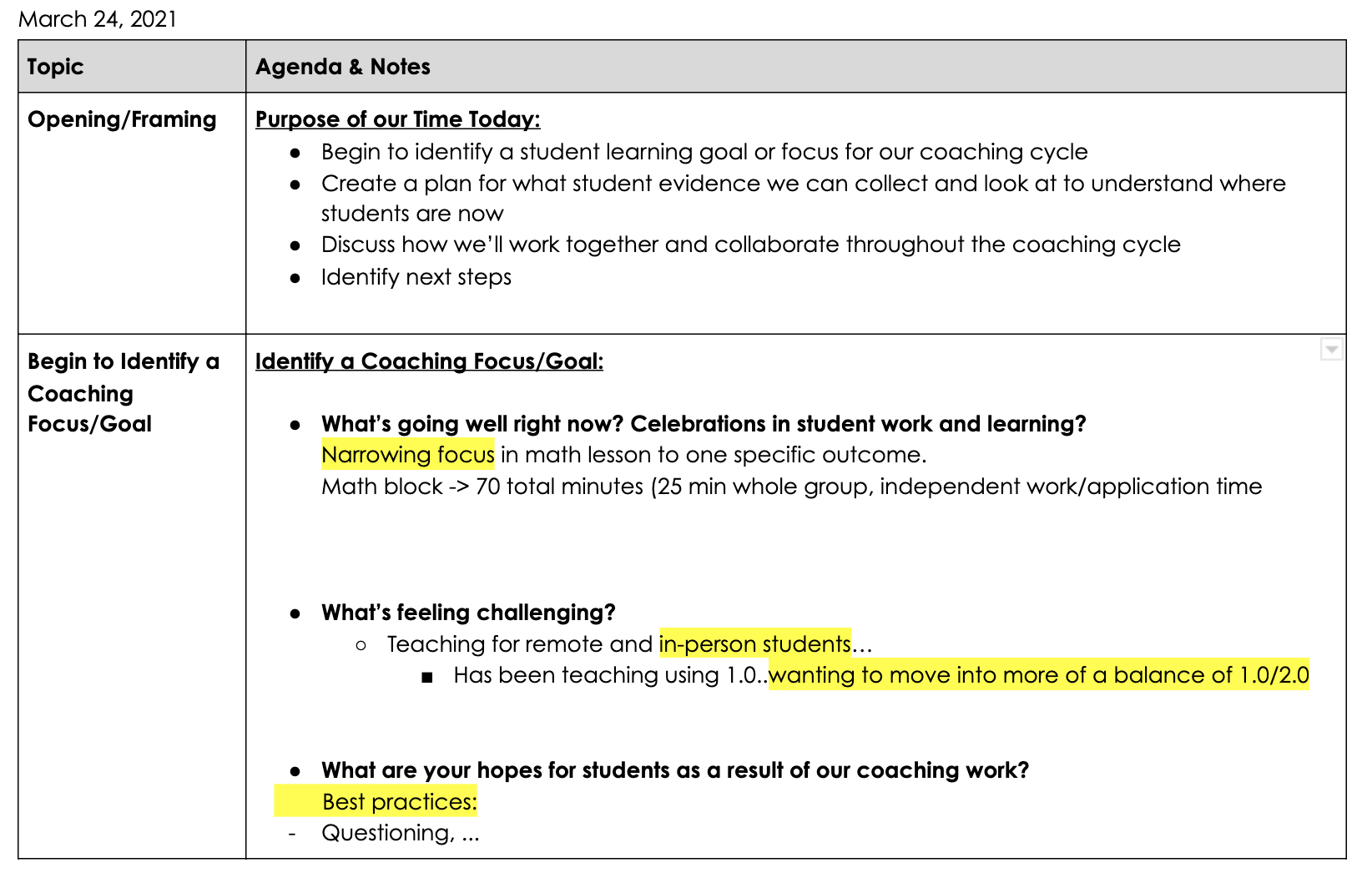

Part of our job, as instructional coaches, is being knowledgeable about high leverage and evidence based instructional practices that make a difference for students despite the content area.
These instructional practices might include:
- Formative assessment
- Questioning strategies
- Student Discourse
- Differentiation
- Feedback
With this in mind, I’ve been able to apply what I know about good instruction, in general, to my work in this math coaching cycle. Our focus in turn, has been on using small groups to intentionally differentiate whole group instruction.
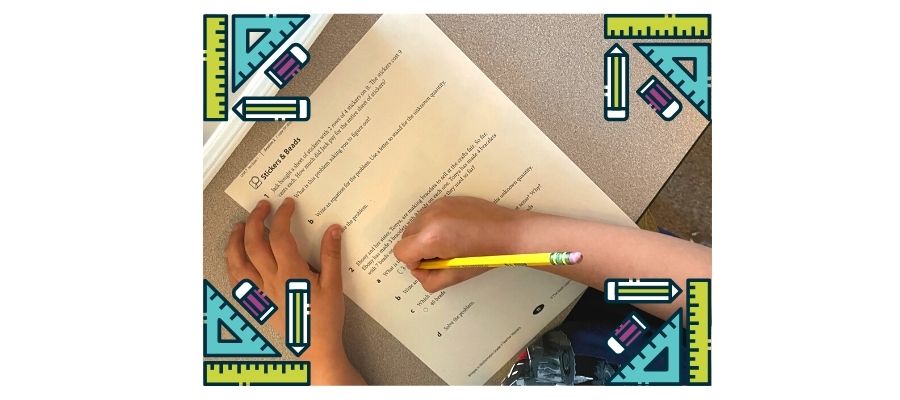

When it comes to literacy, I feel very familiar and fluent with our curriculum, assessments, and standards. However with math, not as much! So I have been blocking off extra time each week to prepare and plan: reading, reviewing, and processing the math unit we’re working in. I’m learning a ton and enjoying the process!
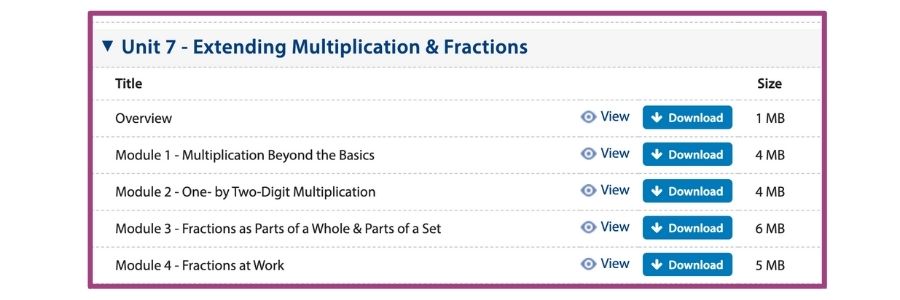

A habit I’ve been working on more this year is taking time for reflection at the end of the week to support my learning and growth as an instructional coach.
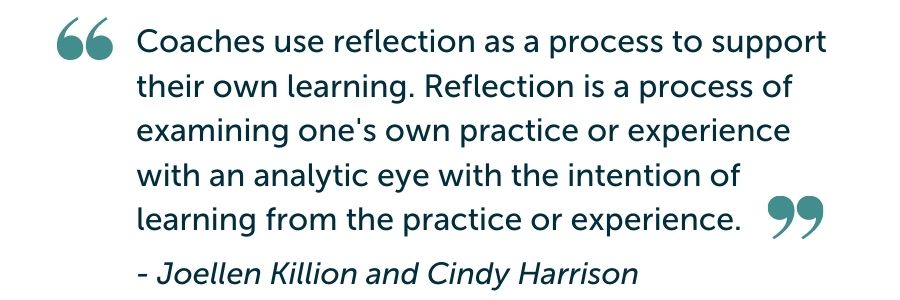
As part of this coaching cycle, I’ve been reflecting on my coaching moves and feedback for next steps. Were they the right ones? Am I working with the teacher to navigate our work in the right direction? Reflection supports me with any needed course correction, week to week.
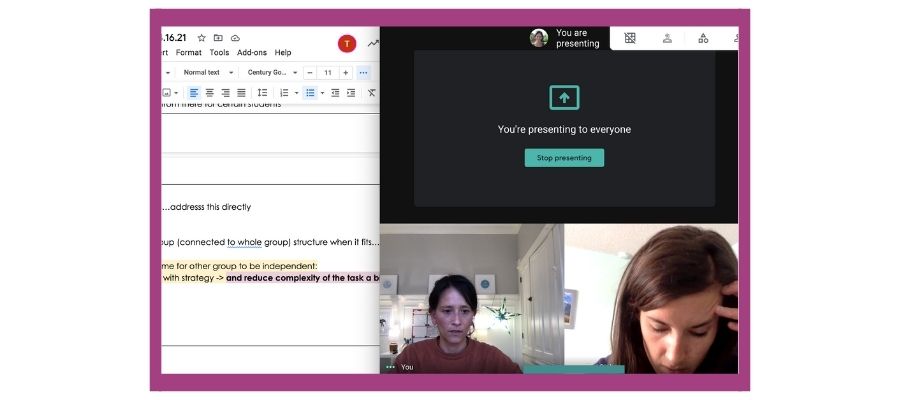
Fridays are asynchronous for us, so I coach from home
I hope you were able to make some connections from this post on coaching outside of your content area to your own instructional coaching work.
Happy Coaching, and see you back on the blog soon!
![]()

No comments yet.